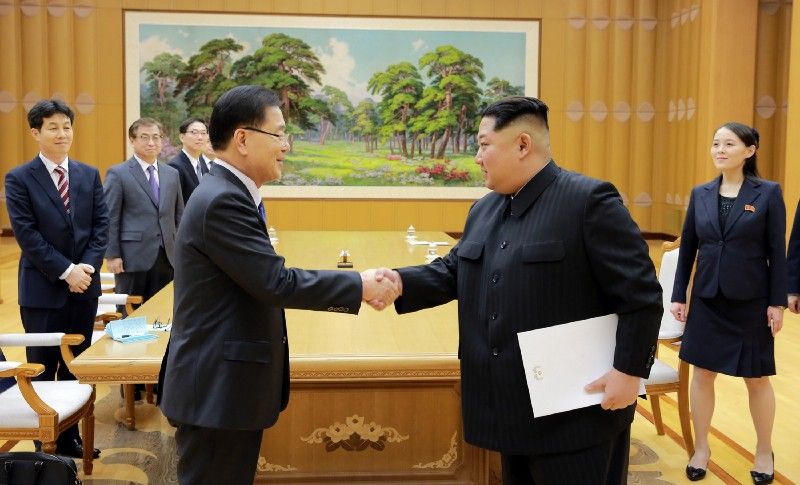March 06, 2018
As we were about to hit send here, news broke that North Korea says it’s ready to discuss full denuclearization, directly with the United States, in exchange for guarantees of its security. The statement comes via the South Koreans, who have just wrapped up two days of talks with their North Korean counterparts in Pyongyang.
Whether this is a sincere desire on Kim’s part to come to the table, or a tactic to stall for time while his scientists race towards a more capable nuclear weapon, is one question. Another question is what kinds of security guarantees would satisfy the North Korean leader, whose country has technically been at war with the US and South Korea for the last 70 years. Surely he will consider the examples of Libya, where Muammar Qaddafi gave up WMDs in 2003 only to be killed in a NATO-backed uprising in 2011, and Ukraine, which agreed to surrender its nuclear weapons for security guarantees in 1994, only to be invaded 20 years later by one of the guarantors.
And of course, even if the thorny problems of how to sequence sanctions relief, denuclearization and security guarantees could be reached, compliance with denuclearization hasn’t been North Korea’s strong suit over the years.
All of that said, the mere fact that North Korea is willing to talk on these terms is by itself a breakthrough — so on this Tuesday morning, the ball is now in Washington’s court.
More For You
Behind every scam lies a story — and within every story, a critical lesson. Anatomy of a Scam, takes you inside the world of modern fraud — from investment schemes to impersonation and romance scams. You'll meet the investigators tracking down bad actors and learn about the innovative work being done across the payments ecosystem to protect consumers and businesses alike. Watch the first episode of Mastercard's five-part documentary, 'Anatomy of a Scam,' here.
Most Popular
Think you know what's going on around the world? Here's your chance to prove it.
© 2025 GZERO Media. All Rights Reserved | A Eurasia Group media company.
